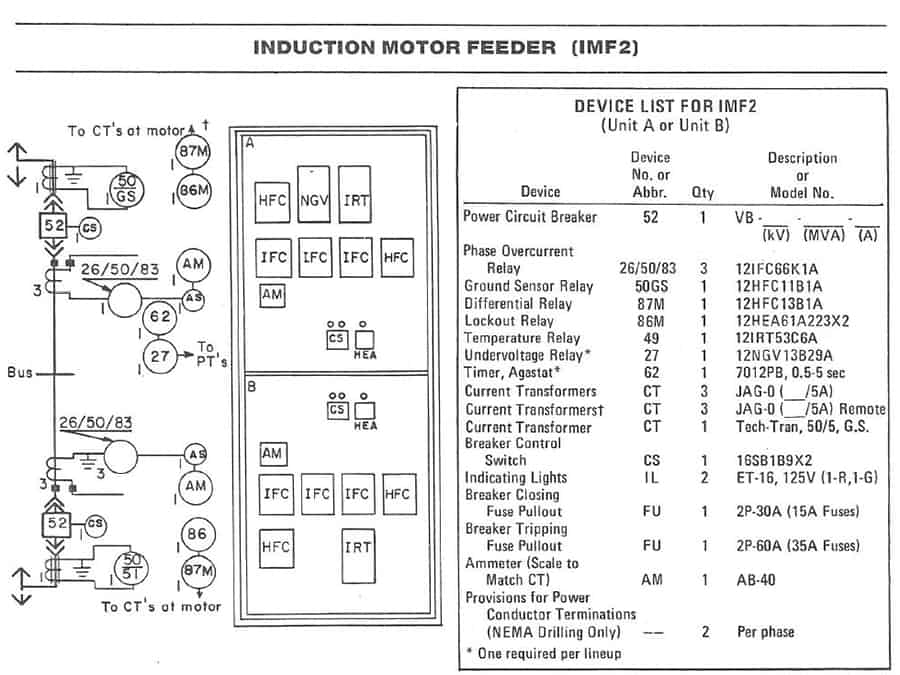Learning abstract technical concepts isn’t easy. But if you learn how to study engineering subjects properly, you can become a 10x engineer.
I’ve gathered 22 tips from my own rollercoaster of experiences and the brightest engineers I know.
So, whether you’re a student or a working professional, buckle up because these tips are bound to give you a leg up. Especially since formal engineering education is losing steam.
#1 Learn something new daily – be an explorer!

Spare 30 minutes every day to dive into a fresh topic.
Imagine you’re learning about electricity in class. Why not be one step ahead and delve into magnetism before it’s even taught? These subjects are like two peas in a pod. As a bonus, you’ll find magnetism lectures a breeze and you’ll be the one asking thought-provoking questions. That’s why getting a sneak peek at lecture material is pure gold.
For working engineers, the world is your oyster when it comes to subjects to pick up.
Here’s what you can do:
- Whip up a list of tantalizing topics you’re itching to learn about. Keep updating it whenever inspiration strikes.
- Carve out a sacred time in your day for self-learning. Maybe set your alarm 45 minutes earlier to squeeze in some study time.
#2 Repetition is key – just like shooting hoops
Basketball players perfect their jump shots by practicing all day long. Do the same with cracking problems and untangling complex subjects. Here’s what you’ll gain:
- Solidifying existing skills
- Expanding or tweaking your current abilities
- Adapting to entirely new skill sets
You become a master of what you practice. Take it from me, sometimes I’ve read subjects over five times just to make the info stick. It’s totally normal.
Here’s what you can do:
- Dive deep into the theory and real-world applications of your subject until you nail every aspect.
- Study related subjects to reinforce your core understanding.
#3 Get your hands dirty – solve problems
Reading is fabulous, but you won’t truly get a subject until you tackle problems head-on. Problem-solving spots your weak points and reveals where you need to up your game.
When you’re stumped, resist the urge to ask for help. Wrestle with problems until you’re ready to pull your hair out. When you finally have that breakthrough, you’ll gain a profound understanding of the topic.
Here’s what you can do:
- Resist peeking at solutions until you’ve given the problem a good, long struggle.
- Don’t cry for help until you’ve exhausted every problem-solving trick in the book.
- Push yourself to the limit by tackling the toughest problems.
#4 Make studying a habit – like brushing your teeth

We all have those days when all we want to do is chill, browse the internet, or play video games non-stop. However, by turning studying into a daily ritual, you’ll find yourself diving into books even when you’re completely wiped out. Remember Tip #2 about repetitions?
The more you practice something, the likelier it becomes a habit. So, if you want to become a superstar engineer, studying should be as natural as breathing. In fact, you need to embrace the journey of lifelong learning.
Think about it: Did Michael Jordan stop practicing after his third championship? Heck, no! He trained even harder, honing his skills as his athleticism began to wane.
Here’s what you can do:
- Make studying the bedrock of your life.
- Power through that initial “ugh, I don’t wanna study” phase. Soon, you’ll be a study machine!
- Remind yourself that studying is like the secret sauce for success.
#5 Go to office hours
Some professors are seriously amazing, and office hours are like getting a backstage pass to their knowledge. Plus, you’ll get instant answers to all your burning questions.
For working engineers, chat with someone who knows more than you. Find a fellow engineer at your office or online to speed up your learning.
Here’s what you can do:
- Jot down your questions before heading to office hours.
- Take detailed notes when your professor or fellow engineer is dropping knowledge bombs.
- If something doesn’t click, don’t be shy—ask for clarification!
#6 Form study squads
Collaborative learning is where it’s at! Mixing different perspectives and knowledge makes problem-solving a breeze.
Plus, you might think you’ve nailed a problem, but someone else could show you an even slicker solution.
Here’s what you can do:
- Try solving a problem solo before taking it to the group.
- Find like-minded peeps who are stoked to learn.
- Set an agenda for each study session—no time-wasting allowed!
#7 Teach others
When you can teach a subject, you know you’ve truly mastered it. Sharing your knowledge with others is like giving yourself a reality check.
Level up by writing a detailed blog post about a topic to gauge your understanding. I’ve done this with calculating current limiting reactor ratings for substations, and it’s incredibly effective!
Here’s what you can do:
- Teach others tricky engineering concepts (e.g., electromagnetism).
- Walk others through problems step by step.
#8 Learn online
The internet is a treasure trove of engineering info. YouTube videos, blog articles, academic papers—you name it.
Even better, there are loads of free online courses from prestigious institutions like Stanford and MIT. So no excuses!
Here’s what you can do:
- Hunt for the best online resources for your subject. Quality matters!
- Fact-check your online content. Not everything online is credible. Read comments, research authors, and double-check sources.
#9 Ditch distractions when studying
Trying to study in a noisy Starbucks? Yeah, right. Most of us can’t handle complex subjects with chaos around us.
Here’s what you can do:
- Find a calm space where you can really focus on your studies.
- Set your phone aside to avoid endless notification pings.
#10 Focus on understanding, not memorizing

Memorizing might seem easier, but if a problem has a twist, you’ll be lost. In the real world, problems aren’t cookie-cutter—you need to know how to solve them without a solution staring back at you.
Here’s what you can do:
- Explore every aspect of a problem to truly understand it.
- Take notes—you won’t remember everything!
#11 Master the fundamentals
You have to crawl before you can walk. The same goes for engineering concepts. Master the basics before taking on the more challenging material.
For instance, how can you comprehend how a motor functions if you don’t even grasp Ohm’s Law? It’s impossible!
Picture it like constructing a building: each floor relies on the one beneath it. Without a sturdy foundation, the whole structure will crumble.
Here’s what you can do:
- Learn the basics before diving into complex ideas.
- Adopt first principles thinking, just like Elon Musk. It’s a powerful way to approach engineering problems.
- Nail down basic math and physics concepts to build your foundation.
#12 Derive engineering formulas
Get hands-on with engineering formulas to grasp their core concepts. You’ll also uncover the connections between the formula variables.
First, get a solid understanding of the subject’s basic principles, as mentioned in Tip #11. Then, you’ll be ready to unravel the formulas and soak up the priceless knowledge.
Here’s what you can do:
- If you’re new to formula derivation, explore textbook examples to learn the ins and outs of the process.
- With each derivation step, dig deep into the underlying logic.
#13 Tackle those tough problems
Tackling complex problems helps you better handle simpler ones. Seek out the most challenging problems you can find and dissect them. As you overcome these, average difficulty-level problems will feel like a walk in the park.
Here’s what you can do:
- Search for difficult problems related to the subjects you’re studying.
- Document every step of the problem-solving process to retain crucial details.
#14 Get a tutor
Tutors can be pricey, but if it’s within your budget, team up with a fantastic tutor for a few sessions. One-on-one instruction can be incredibly effective.
Alternatively, ask a brainy friend or coworker to teach you for free. Just be sure to treat them to some beer and pizza afterward.
Here’s what you can do:
- Jot down your questions before meeting with a tutor.
- Take thorough notes during your tutoring sessions.
#15 Stay curious
With so much to learn in engineering, never stop asking questions. After 15 plus years as an engineer, I still ask questions daily from vendors, contractors, and fellow engineers. The more I learn, the more I realize how much I don’t know.
Here’s what you can do:
- Don’t be afraid to ask questions; there are no stupid questions.
- Seek reliable sources for answers, such as classmates, engineers, or trusted individuals.
- When a question pops up, write it down to avoid losing it, just like a fleeting dream.
#16 Develop a problem-solving strategy
Once you understand a problem, develop a plan to address similar challenges. For example, when dealing with single-phase voltage drop calculations, my strategy is:
- Sketch a schematic diagram with known and unknown variables.
- Visualize the problem’s underlying theory (e.g., current decreasing along a lengthy impedance – the wire).
- Crunch the numbers to solve the problem.
Here’s what you can do:
- Examine various problem-solving methods, pick the simplest one, and tweak it as needed.
- Learn how others approach and solve similar problems.
#17 Gain hands-on experience

Studying concepts in books can be baffling, but seeing real-world applications brings them to life. Observing the practical side of things connects the dots, making learning more enjoyable. After all, we’re visual creatures.
In my opinion, real-world experience beats education any day.
Here’s what you can do:
- Look for real-world examples of the subject you’re studying to observe, examine, and ask questions.
- Bring schematics to project sites to compare theories with reality.
#18 Take meticulous notes
A recurring theme in these tips is exceptional note-taking. I used to study a subject for hours, thinking I knew it all. But months later, the finer details would slip away, and I’d regret not taking notes.
Don’t waste time relearning and searching for sources—take notes!
Here’s what you can do:
- Note down everything, even the details you think you’ll remember forever.
- Transfer your notes to an online platform, complete with descriptive keywords for easy searching.
#19 Embrace Unlimited Learning
Just because your syllabus tells you to focus on subjects X and Y, don’t let that stop you from exploring subject Z! This idea applies to working engineers too – if you’re an electrical engineer, go ahead and dive into mechanical engineering.
Don’t let predefined labels or boundaries dictate your life. The more knowledge you acquire, the more well-rounded of an engineer you’ll become.
Here’s what you can do:
- Be fearless in diving down a new rabbit hole to learn something fresh.
- With universities no longer being the sole gatekeepers of knowledge, take advantage of the internet to discover a myriad of fascinating subjects.
#20 Break Down Problems Step-by-Step
When tackling problems, jot down each step and variable. This will not only deepen your understanding but also help you troubleshoot more effectively.
For instance, as a design engineer, I’ve cracked problems like:
- Substation battery sizing calculation
- Current limiting reactor sizing calculation
- Substation construction sequencing steps methodology
- Utility power factor penalty calculation
Here’s what you can do:
- Study clear and concise problem examples in textbooks, then follow those steps in your own problem-solving process.
- Write down each of your mathematical or conceptual steps.
- Note down all unit values.
- Add explanatory notes to your steps, as needed.
#21 Visualize problems with sketches

As visual beings, sketching out problems can offer benefits like:
- Boosting brainstorming
- Encouraging critical thinking
- Facilitating proper evaluation of solution feasibility
I’ve found that the better you can sketch problems, the easier it is to solve them. Honestly, it’s tough to draw up problems you don’t fully comprehend.
Here’s what you can do:
- In your sketch, display each problem variable and the target solution.
- Create a scale sketch if it helps with visualization.
- Examine sketches of similar problems to learn what details to include in your drawing.
#22 Tackle problems with logical thinking
Before attempting to solve a problem, have an intuitive solution in mind.
For example, imagine a long conductor run with a source voltage of 480 volts. The question asks for the load voltage.
Right away, you know the load voltage will be less than 480 volts due to conductor impedance. If your calculated answer is above 480V, you know there’s a mistake.
Here’s what you can do:
- Practice analyzing problems from a rational, real-world perspective, and figure out how problem variables interconnect.
- Develop a deep understanding of engineering and science concepts to intuitively assess problems.
“How to study engineering subjects” wrap up
Mastering how to study engineering subjects is like acquiring any other skill. You need to work on it to improve. When you train yourself to work like a well-oiled machine, the process becomes even more manageable.
In the end, studying will be enjoyable and effortless. Your entire engineering career will transform for the better.
What are the best ways you’ve found to study engineering subjects, and how has the internet impacted your approach to studying these subjects?

very helpful thanks alot